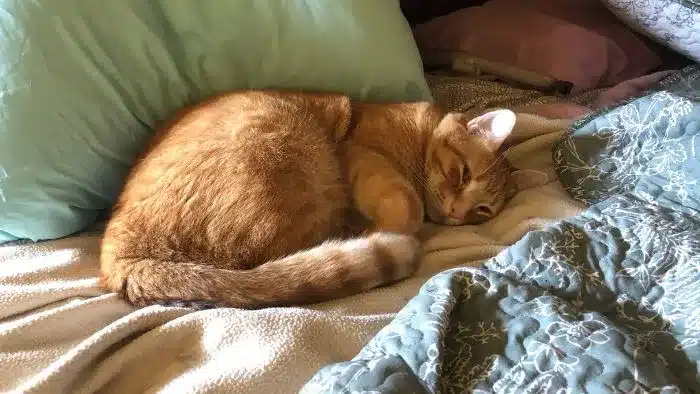When Is a Cat Considered a Senior?

Cats live short, precious lives. From playful kittens to slow-moving seniors, knowing when your cat enters old age is key to proper care. So, when does a cat become old? This involves age markers, body changes, behavior shifts, and health risks. Read on for the details.
1. Age stages
Cat-to-human age isn’t a straight line. At 1–2 years, cats are like human teens: fast-growing and energetic. Around 7–8 years, they hit senior status, roughly like a 44–48-year-old person. After 8, bodily functions fade, and aging signs appear. Breed, environment, and health matter too. Small breeds (e.g. Siamese, Singapura) often stay adult until 9–10 years, while large breeds (e.g. Maine Coon, Ragdoll) may show senior traits at 6–7. Good care and regular vet checks can delay aging; poor conditions or chronic illness speed it up.
2. Physical changes
Senior cats lose their sharp vision and hearing. Their eyes may cloud, and they react more slowly to sounds. Teeth wear down, gums shrink, and chewing gets harder, often leading to bad breath and tartar. Muscles shrink and bone density dips, raising arthritis risk. Jumping, climbing, and daily movement become tougher, so they rest more. Heart and lung function also weaken—irregular breathing, fatigue after light exercise, and lower immunity are common.
3. Behavior shifts
Older cats grow calmer and less curious. They play and explore less, opting for long naps or quiet spots. They may seem withdrawn, respond less to you, and sleep more during the day, but wake at night. Slower metabolism can dull their appetite and reduce food intake. Some develop cat dementia, getting lost, forgetting their food bowl or litter box, and acting confused at home.
4. Rising health risks
Lowered immunity brings higher disease risk. Common issues are kidney failure (signs: excessive drinking and urination, loss of appetite, weight loss), diabetes (high blood sugar causing hunger, thirst, urination, and weight loss), heart disease, tumors, and urinary problems (bladder inflammation, stones blocking urination). These conditions harm quality of life and can be life-threatening, so regular check-ups and preventive care are vital.
Knowing when your cat becomes a senior—and what to watch for—helps you give better care. From diet tweaks and daily support to scheduled vet visits, every detail counts for your aging fur baby.
